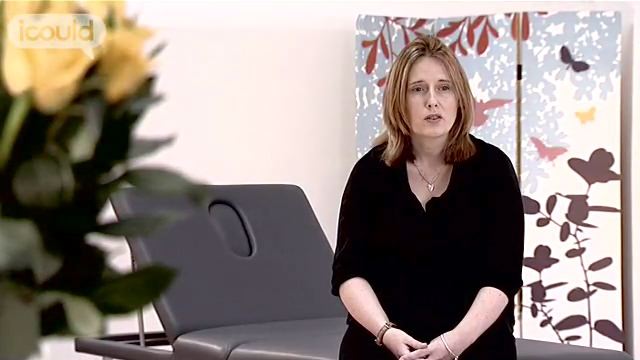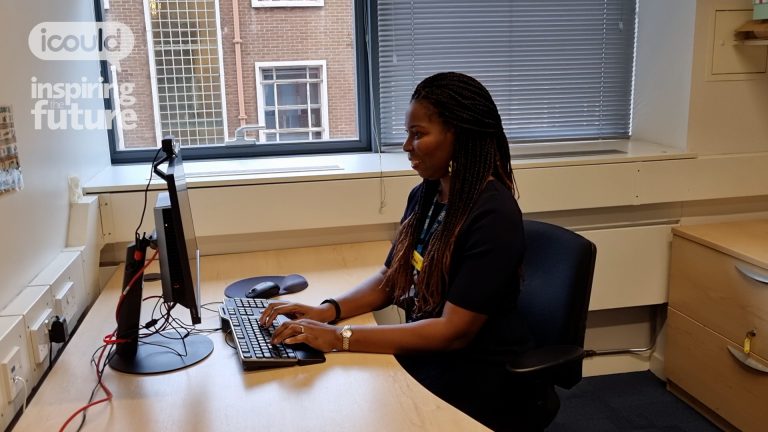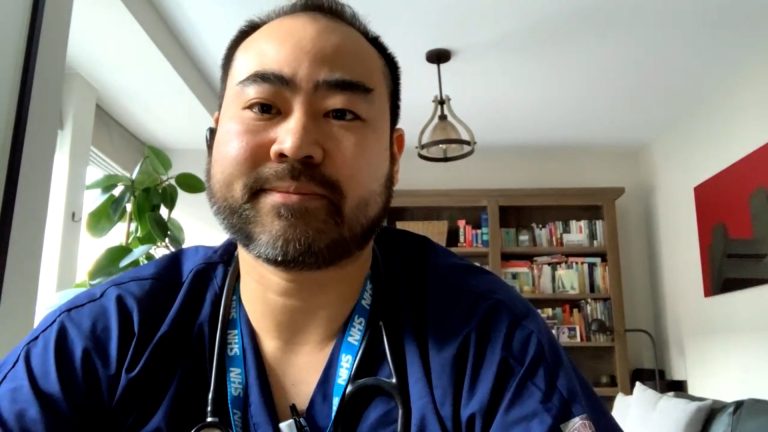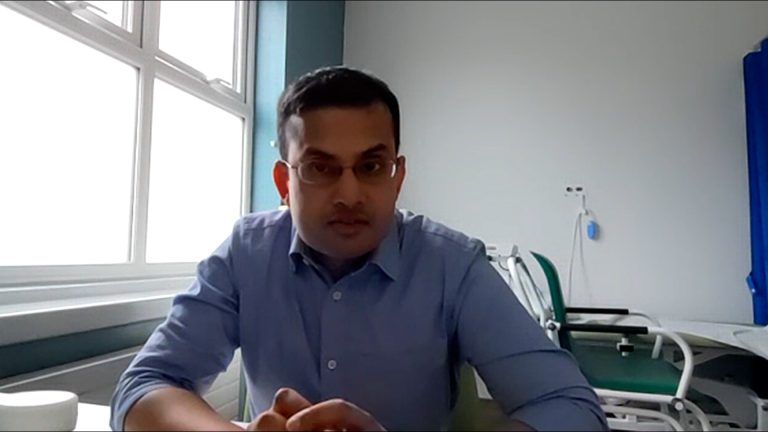Clinical Psychologist
Millers Yard
Claire C
00:00:03 My name’s Claire C, and I’m a Clinical Psychologist, and I work in the NHS, and in private practice in York. When you first start out in the job it’s really, really hard not to get really caught up in people’s problems, but you learn a way of coping with that, and actually you find the job that you do is really helping people. You’re talking about the things that people don’t ever really talk about with people, and that’s – I enjoy that part, because a lot of the time in the world, we don’t really talk about the things that we really should be talking about. And actually, as a Psychologist, you get to find out things, and talk to people about things that really matter, and really help them in the long term, so it has that other side of it, even though you hear very difficult things.
00:00:49 I always knew I’d be a Psychologist, always wanted to be a Clinical Psychologist. I remember writing to the professional organisation when I was sort of 13 for a leaflet on – which is a bit – it’s a bit sad really, isn’t it, but I always had this sense. But I didn’t – I don’t think I always knew myself until I became a Psychologist. It was a real learning – personal learning curve. Until the GCSE I didn’t really do anything related to Psychology, but then A-Level, I changed schools so I could do A-Level Psychology, because I wanted to see if it was what I was interested in. And then I just naturally went on to degree in Psychology, I just knew that’s what I wanted to do.
00:01:30 And then I sort of got inspired by lecturers to do more Forensic Psychology, so looking at sort of criminality. And I did a Masters in Forensic Psychology. But realised it wasn’t really for me, because working as a Psychologist in Forensic Psychology it’s – you’re working in a very different system, where people don’t really want to engage with you and therapy, they’re made to come to you as a Psychologist. And I realised that wasn’t for me, I couldn’t really work in that way, where people didn’t want to be part of the process. So I then looked towards Clinical Psychology, and worked as an Assistant Psychologist in the NHS to gain experience.
00:02:10 So these are jobs that are available in the NHS for people trying to get on the Doctorate of Clinical Psychology, you work as an Assistant. I did that for a couple of years, and had some really good supervisors who really inspired me in terms of therapy. So then I – and then started the Doctorate, so – so it’s quite a long road.
00:02:25 There’s been lots of cases where I’ve worked with people that have really had an impact, or that have really made me thankful that I do the job. I think the high point for me was getting my Doctorate and finishing, because it was such a long road to getting there, that it’s a real high point when you achieve – it’s something I worked towards from being at University, being 18. So it’s a long – a long road that I went down. And so once I got – got that, it was a real high point for me. But every case in a way has – has it’s low points, but a lot of them have a lot of high points really. And sometimes I think if I didn’t get paid for it, I’d still do it for free, because I enjoy it that much really. The connection you have with somebody, and the meanings you make is – it’s really interesting, and quite a powerful experience really.
00:03:12 Overall I would say I really enjoy my job, I don’t come away from it thinking – Oh, do I have to go back to work. I always want to go back to work. I’m always interested in it. There’s bits I don’t always like, but that’s true of any job. So I’m realistic, it’s definitely lived up to what I hoped it would be. Maybe more, I think ’cause the bit I love about Psychology is that you’re always learning and you’re always developing. So it’s never seen as a static thing that you just stay in one place, it’s always seen that you’re progressing. You’re always reading more, always looking for different ways of working, always – so it challenges you intellectually all the time, yeah, and that’s – that’s what keeps you going I think.
00:03:53 ENDS
Claire C is a Clinical Psychologist, “The connection you have with somebody, and the meanings you make is – it’s really interesting, and quite a powerful experience really.” She wanted to be Psychologist from the age of 13 and now she has a Doctorate. She works for the NHS and in private practice.
More information about Specialist medical practitioners
The UK average salary is £29,813
There are 37.5 hours in the average working week
The UK workforce is 47% female and 53% male
Future employment
- Examines patient, arranges for any necessary x-rays or other tests and interprets results
- Diagnoses condition and prescribes and/or administers appropriate treatment/surgery
- Administers medical tests and inoculations against communicable diseases
- Supervises patient’s progress and advises on diet, exercise and other preventative action
- Provides specialist advice to generalist medical practitioners or other specialists
- Performs specialist medical tasks such as surgery, anaesthetisation and diagnostic or interventional radiology
- Prepares and delivers lectures, undertakes research, and conducts and participates in clinical trials
- Takes overall responsibility for, supervises and directs the implementation of care and treatment plans by other healthcare providers






